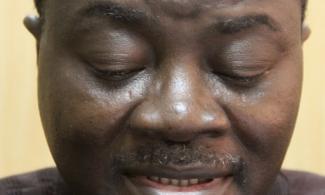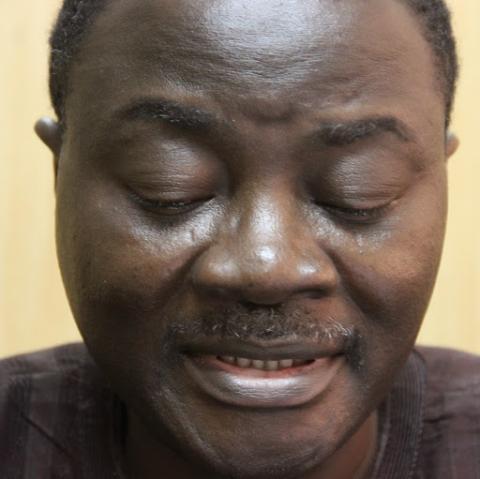
Last week, The Economist of London (June 20th – 26th 2015 edition) ran a story on the near-collapse of the economy of Ghana. In that story, we were told that public debt could reach 70% of GDP of Ghana before the end of this year. Because investors continue to shun its bonds, Ghana’s currency, the cedi, has lost over 99% of its value against the US dollar. Inflation is soaring high. Miseries are taking over the market-places. Ghana, which has borrowed from International Monetary Fund more than 26 times since 1966, is turning, once again, to that financial institution which will only give another loan with all the conditionalities attached – condititionalities that will eventually erode the sovereignty of Ghana as a nation. That story could have been about most of the countries in sub-Saharan Africa.

Where did the rains of unending economic, social and political adversities start beating Africa? Why is it stuck in the hellhole of these calamities, becoming a wretched of the earth? Why is it that when IMF and World Bank ask African countries to reform and adjust with a promise that they will attract Foreign Direct Investments (FDI) they usually end up handing over their economies to foreign investors, leaving millions of Africans in extreme poverty and the future of their countries in dire strait? What is responsible for what Professor Issa Shivji has described appropriately as this ‘’imperial injustice’’? In concrete terms, can the solutions the financial institutions of the world – IMF, World Bank and their allied agencies continue to offer Africa save it? In what ways have these solutions compounded its problems? If these solutions have not solved Africa’s developmental problems, are there alternative strategies – strategies that have been proffered by African statesmen, and Africanist scholars across the world? How come that all those patriotic Africans like Kwame Nkrumah, Amicar Cabral, Obafemi Awolowo, Thomas Sankara, Agostinho Neto, Samoral Machel, Patrice Lumumba, etc., etc., who suggested Afro-centric ways of solving African economic problems were either assassinated or prevented from attaining political power in what have been shown as high-wire conspiracies in which security agents of the global North were deeply implicated?
Shortly after he finished his doctorate studies at the University of London in 2004, Sylvester Odion Akhaine rose to the challenge of finding answers to these questions. More than what he used to know as a student activist and a pro-democracy activist, he has discovered that the dangerous world of unequal exchange between the poor debtors in the developing world and their wealthy shylock creditors that always ask for a pound of flesh is tragically complex. The result of his scrutiny of available facts is this book: Patrons of Poverty, which all started as a sobering polemical essay in TELL magazine on February 17, 2003 with a title “IMF and its Hubris”. This is an erudite book, yet Akhaine wears his learning lightly. He guilds his readers through the labyrinth of arguments – his and those of others – without boring them. He does not obsessively mystify with jargons; he allows his words to explain and describe his clear thoughts. He bears witness to the intellectual honesty of scholars like Walter Rodney, Claude Ake, Jeffrey Sachs, Bade Onimode, Joseph Stiglitz, Adebayo Olukoshi, John Perkins, Samir Amin, Ann Seidman, Okwudiba Nnoli, Colin Leys and Cheik Anta Diop. In the light of their theoretical constructs and conceptual frameworks, Akhaine writes confidently and authoritatively.
He argues that before the coming of the European colonizers, Africans produced what they ate, and they had food surpluses. They were moving almost at the same developmental pace as those who came to arrest their developments--- those who swindled them. Africans did not only dominate their environments, they never had problems of unemployment---they embraced the culture of dignity of labor, even with all its stammering incompleteness. They built their functional homes and clothed themselves. They had their human problems, which they devised many ways of solving. Referencing Walter Rodney’s How Europe Underdeveloped Africa, the author observes, “Africa had better to offer in terms of cotton cloth already widely in use before the advent of the Europeans, and … cottons from the Guinea coast were stronger than the ones from Manchester.” Indeed, in the 17th century, the soap made in Africa was sold in European markets. They built pyramids of Egypt, the universities of Timbuktu and Alexandria. The Europeans were impressed by the beauty of the ancient Benin; the art works in Ile-Ife and other places in Africa. But with the transformation of feudalism to industrial capitalism in Europe, the long- agonizing history of colonialism in Africa and its attendant economic exploitation began. For five hundred years, Akhaine reminds us, European slave traders, and their local collaborators, robbed Africa of its most productive human beings. Africans were bought, transported across the Atlantic, possessed and treated as mere articles of trade. They were made to do backbreaking and heart-breaking jobs as cheap laborers. While slave raiding affected agricultural activities in Africa, the bought able-bodied men and women ultimately contributed immensely towards the foundation of the global North. So much blood was spilled. Embedded in this pursuit, this heinous crime against humanity was supremacist logic. This historical injustice is largely responsible for the underdevelopment of Africa. Even when slave trade was abolished, the unequal exchange did not stop as Africans still labored under colonialism to feed the industrializing Europe and America with their cash crops over which trade they had absolutely no control. According to Akhaine, most of the post-colonial leaders of Africa have continued with the plunder of the continent for they simply serve the neo-colonial interests of the West. Any wonder that a continent that was relatively wealthy pre-slavery is plagued by debt. The author provides a detailed account of this debt burden, stating, as an aside, that one of the consequences of this underdevelopment is the unceasing brain drain from Africa.
This, then, is a historical problem that the founding and objectives of the IMF and World Bank came to compound. To start with, in July 1944, when 44 countries met in the village of Breton Woods in America to found World Bank, African countries were not part of the deal because they were colonies. It was clear at the beginning that America and Britain were the two dominant forces. Relying heavily on the account of James M. Boughton, Akhaine submits that: “Whereas forty-four nations signed the Breton Woods agreement, the vision and terms were those of the US and Britain.” Over the years, the US has become a supreme force behind the World Bank, thereby “promoting the balanced growth of international trade in a way that preserved the central role of the US dollar in international finance.” It was as a specialized agency of the United Nations that IMF was established on 27 December 1945. Akhaine’s take on the mission statement of IMF enshrined in the Fund’s Article of Agreement is that it is meant to cater for the interests of the global rich. Again, because of its highest quota in the Board of Governors and Executive Board, the dominance of the US in the IMF is guaranteed. He criticizes the inherent democratic deficits in the two world bodies. To be sure, the arguments here are not in defense of bad debtors, or the Africans who have underdeveloped, and who still swindle, Africa. The arguments here are: Is it just to send people whose hands you have chopped off to a clapping competition and expect them to win? Why is it difficult to have world economic institutions that will work for our common humanity?
Akhaine criticizes IMF and World Bank for advising currency devaluation, downsizing, in the name of structural adjustment policies. He argues that these are detrimental to the poor countries and their people. He shows how the US has used the IMF and the World Bank to feather its own political nest as it meddles in the domestic affairs of other nations by supporting dictators with generous loans and planting their agents like Ngozi Okonjo-Iweala in key ministries in developing countries. As history shows, however, the bane of development is corrupt, wasteful and incompetent governance. Brett Schaefer of Heritage Foundation is quoted in this book to have said, “Development aid does not help. What helps is economic freedom.” Presenting themselves as agents of modernity, both IMF and the World Bank’s experts have one time or the other drawn up development plans for many countries in sub-Saharan Africa. The author gives instances of so called development plans, which have worsened the conditions of the continent. He dismisses the plans as “reproducing the unequal economic relations of the colonial setting”. He submits that IMF and World Bank, with privatization, foreign direct investments, and deregulations, have not solved Africa’s economic problems. Instead, the prescriptions have proved to be debt traps.
Akhaine proposes that we should look elsewhere, or more specifically, look inwards for solutions to Africa’s problems. To him, the Lagos Plan of Action (LPA) and the African Alternative Framework to Structural Adjustment Programme for Socio-economic Recovery and Transformation (AAF-SAP) are two African-oriented plans worth considering. The Lagos Plan of Action was adopted by the Heads of State and Government of the Organisation of African Unity (now AU) at their Second Extraordinary Session in Lagos in April 1980. Self-reliance, driven by the local economies of African countries, is central to this compelling, liberating social-economic strategy. It proposes what should be done to have food sufficiency, to have industries, to benefit more from the continent’s natural resources; what Africa should do to develop its human capital, science and technology, to develop its transport and communication systems, its trade and finance, its environment and energy. It proposes how to build institutional support for the implementation of the proposals----how to strengthen the mechanisms that will energies the proposals and discourage prebendalist conduct and politics of the belly. Many other Africanist scholars have also recommended similar option. For instance, Richard Joseph, in his essay, ‘’Africa After Gleneagles: Overcoming Misrule and Stalled Development’’, advances concisely: ‘’The strength of countries ultimately resides in the strength of their capacity to produce public goods, whether to generate profits, serve the public, or both, and to do so predictably and reliably. At the most basic level, governments must be able to build and maintain transportation systems and public utilities, establish capable judiciaries and police services, and efficiently manage monetary and other economic policies. These goals, for the most part, have eluded many African countries’’. As Patrons of Poverty shows, the Lagos Action Plan has been an important road not taken. Yet, to paraphrase Robert Frost, the great American poet, it is a road that will make all the difference.
--Mr. Kunle Ajibade, Executive Editor/Director of TheNEWS magazine and P.M. NEWS, read this review at the public presentation of Patrons of Poverty on 30 June, 2015 at the Rights House, Lagos.